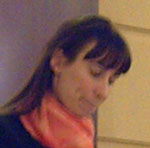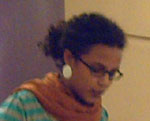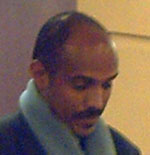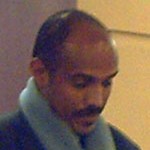Stockholm’s Seminar Report held at the Swedish parliament
By organisers
The Seminar organised by the Swedish International Liberal Center in co-operation with the Eritrean Associaition for peace and democracy and with the financial support of the Swedish Development Forum was completed successfully. Many Eritreans and Swedish, from various political parties, civil societies, Eritrean friends and other individuals involved and concerned on the Eritrean situation have participated
The theme of the seminar was , “Eritrea is between Hope and desperation.”
Mrs. Birgitta Ohlsson addressed the meeting by saying welcome to all participants and in particular, she welcomed to the guest speakers. Mr. Erik Jennische, the moderator of the meeting on his side introduced the speakers to the public.
Mr. Ibrahim Abdalla has given a short information about Eritrea and its people and some historical facts from the birth to independence, and the situation now after independence.
Speakers
- Human rights in Eritrea
 Mrs Maja Åberg from Amnesty International has given detailed human violations in Eritrea. She Has focued on the methods of torture practiced by the regime in Eritrea. She mentioned:
Mrs Maja Åberg from Amnesty International has given detailed human violations in Eritrea. She Has focued on the methods of torture practiced by the regime in Eritrea. She mentioned:
– the helicopter
– metal container
– auto
– other psychological means
– rape
She has also taken those who are victims, for example, those who escape from military conscription, religious believers, political dissidents, women who refuse nor to obey the officers and many other civilians. She also told the meeting that Amnesty’s source of information are the people who escape from Eritrea. Amnesty and other human rights watch are not allowed to visit Eritrea, therefore we are dependent on the people fleeing Eritrea to Sudan and Ethiopia.
She concluded her speech that Amnesty has no power to bring changes but reports the human rights violations in Eritrea, it is the Eritrean people and the world community to exert their pressure on the regime, she added.
- The rights of women in Eritrea
 Mrs. Hayat Ibrahim, political scientist from Uppsala University, provided an overview of the situation of the women in Eritrea after independence. The key issues she raised were,
Mrs. Hayat Ibrahim, political scientist from Uppsala University, provided an overview of the situation of the women in Eritrea after independence. The key issues she raised were,
– trafficking
– women in the military camp of Sawa
– prostitution
– rape
– integration of the fighter women to the civil society
She elaborated her presentation how the women after independence were exposed and could not get the opportunity to develop themselves and build a democratic family life in Eritrea. The regime in Eritrea had no plans and programmes for the development of women except using them for its egoistic interests, said , Hayat.
The trafficking of women after independence was run by the government agents to fill the coffer of the president and his henchmen.
The issue of Sawa Military Camp and how the young girls are treated by the military officers is brutal and animalistic action. Young girls are raped and kept as maid servants; if they refuse to obey the order of the officer , either they are shot or put incommunicado for unlimited years. Suicides and mental disturbance are enormous in the camp. They suffer of unknown psychological diseases called, “ hi-cup” pointed, Hayat.
She also has discussed how the young girls escape the land from the persecution and harassing of the system in Eritrea and suffer in the deserts of Sudan, Libya to their way to Europe.
Finally , she concluded that the government in Eritrea is not in favour of democratisation, in general,; and equality between men and women , in particular. We need attitude change in Eritrea.
- The role of civil society in Eritrea
Presenter
 Dr. Numan Hubadin, member of the Eritrean Medical Association, described his experience on the development of civil societies in Eritrea during the political and armed struggle.
Dr. Numan Hubadin, member of the Eritrean Medical Association, described his experience on the development of civil societies in Eritrea during the political and armed struggle.
He mentioned the political associations of the liberation fronts like labour unions, student unions, women unions, and peasants’ movements. Upon these foundations, no of these foundations were free and voluntary but every association was subordinate to its political organization, they have no freedom to perform their tasks freely. But these associations were significant force in the politics of Eritrea in many years during the liberation period, emphasized, Numan.
On the flourishing civil societies in diaspora in general; and in Sudan in particular at this time; he argued that it is equally necessary to support and develop societal organizations and strengthen the weak opposition camp for the purpose of increasing the possibilities of successful transformation to democratic politics.
In fact, democracy is not sustainable without vibrant civil society in any country in the world at this age, tressed , Numan.
Dr. Numan later discussed how the Eritrean medical officers in Sudan voluntarily organised a civil society. He elaborated the motives, objectives, programmes and policies of the association. He has also mentioned the problems facing this association and the sufferings of the Eritrean people in the refugee camps without assistance from the world. The Eritrean Medical Association established medical center in Khartoum last year and has many activities at the refugee camps in eastern Sudan. Our organisation can not cover the whole refugee camps but is just helping by information and medical consultation.
- Alliance- building in the opposition camp
Presenter
Mr. Hussein has thanked on behalf of EDA and himself the Eritrean association for peace and democracy, and the Swedish international liberal Centre. ( SILC) He has also expressed his appreciation to Ms Birgitta Ohlsson as a champion of peace ,democracy and human rights. He also thanked Amnesty International and other panellists to participate at this seminar.
Mr. Khalifa presented his speech briefly focusing on the foundation of the Eritrean Democratic Alliance. He discussed the process of Alliance building from 1999 and later how it has developed from 12 political organizations to 16 political organizations. He further discussed on the EDA charter, its political program, organizational structure,leadership with legislative and executive bodies. He has focused on the following issues;
– principles
– objectives
– policies
– programmes
of the EDA. He classified the periods of struggle for democratization by the EDA.
Mr. Hussein said that the human rights violations in Eritrea are clear and you are aware of that. Conditions in Eritrea are deteriorating, the worst and most shameful action of the regime is house -arresting of the Eritrean Orthodox Church’s Patriarch Antonios.
The Eritrean has never seen such ruthless government in their country previously, pointed, Hussein.
The barbaric wars with neighbours, the jailing of political, religious leaders, journalists and many other civilians because of their opinion is unacceptable, stressed, Hussein.
The situation in Eritrea has reached inferno where people are jailed daily. Parents are arrested and jailed because they helped their children to escape from the military camps. If they don’t bring back their children they should pay 50000NF as punishment.
The regime in Eritrea is destroying the Eritrean people, why is the world silent? Asked, Khalifa.
Khalifa, finally thanked for the opportunity to make this short speech on the situation in Eritrea.
Note: ( Mr. Khalifas speech will be separately published on the Eritrean websites)
Panel Discussion
The Panel was moderated by Erik Jennische,
The first question was asked by Jennische directed to Mr. Hussein,
“ I have read the charter of EDA and it has interesting provisions but I would like to ask you Mr Khalifa,
– What do you by all means of struggle?
Ans: Mr. Khalifa responded the question by elaborating the various methods of democracy by making the people aware through information ( media- radio, tv and newspapers), mobilising the people to rise against the dictatorial regime, appealing to the world community, UN, AU and the nations of the world.
Question: Have you any support from the government of Sweden?
Ans: Khalifa , we have no support from Sweden, but we now appeal to the Swedish government to help the Eritrean refugees in Sudan and Ethiopia.
Question: Have you any report information about Moslem teachers and elders who were taken from their homes at night between the year 1995-1996, and still not known their whereabouts? The Question was directed to AI.
Ans: Amnesty International, Maja Åberg responed by saying that information from Eritrea is not possible because we are not allowed to enter Eritrea ourselves and collect information. Our sources of information are those who ask asylum in Sudan and other countries.
Question: What can be done to make women participate and change the situation? The question was directed to Hayat.
Ans: We need more debate and seminars where women participate and there should be attitude changes in our society.
Question: What protection can the EDA give to the refugees in Sudan from harassing of the regime in Eritrea? The question was directed to Mr. Hussein Khalifa.
Ans. EDA has no jurisdiction in Sudan or Eritrea to stop or to investigate the kidnapping of Eritrean refugees from Sudan but try to influence the security authority in Sudan that the regime in Eritrea is kidnapping Eritreans, which is against the international law for the protection of refugees in Sudan.
In response to questions, Mr. Hussein has taken as example the “Sudanese Journalist” who was in jail for 5 years without jail. This journalist has drawn the sun set and the sun rise in his paper, when he wake up in the morning he saw the sun rising from the east and in the afternoon, he again saw the sun falling to the west. When Essayas’s security men read this they directly related it what president Essayas has said during the war of Badume, it was because of this . the Sudanese journalist was put in jail for five years. Hussein said that people are jailed by suspicion for unlimited times in Eritrea today and Eritrea is a prison to all Eritreans and others who visit Eritrea, Dwait Isaak was Swedish who went Eritrea but was put in jail and still suffering. The regime in Eritrea is the criminal jailer of journalists who advocate for human dignity.
The seminar has discussed and questions raised on human rights and democracy in Eritrea during the panel stimulated debate among the participants. Finally, participants expressed their appreciation and suggested that such seminars should be hold regularly.
Short URL: https://english.farajat.net/?p=3298



















